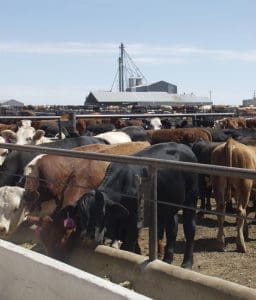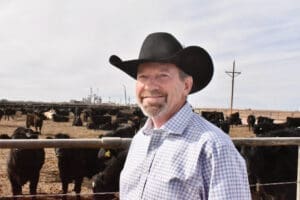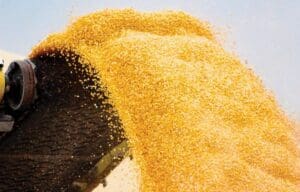By Megan Webb, Ph.D., Contributing Editor
The Constitution of the United States divides the federal government into three branches – legislative, executive and judicial – to ensure no individual or group will have too much power. This same principle can be carried out on your operation and in your house. Like Barbara Bush said, “your success as a family … our success as a nation … depends not on what happens inside the White House, but on what happens inside your house.”
Operation Effectiveness
So, where do we go from here? I’ll encourage you to apply the Pareto Principle or the 80/20 rule, meaning that 80 percent of the output or results come from 20 percent of input or action. If we can identify and then prioritize our effectiveness, we will have more time to prepare for a prosperous future. Taking the time to create the culture in your operation to be disciplined enough to focus on high-priority items, even if they are not those outside or most enjoyable, will foster the greatest reward for the individuals and, ultimately, the operation.
Scheduling time to reflect on your business and determine your operational goals that involve your team’s leadership will foster a good culture that can withstand some “turbulence” and build a business. This effort may look a bit different for each of us, but the aim is to “work on” the business vs. just “working in it.”
As agriculturalists, we are good at “working in” the operation, improving efficiency and production. However, the business requires more time to be sustainable. Taking time over coffee two mornings a week may be enough to balance and improve the operation’s outcomes significantly. Whatever your best time is, doing your highest priority objectives in the business during that time will be more impactful. Having this time to think with your employees or colleagues to openly share ideas that aren’t part of the day-to-day is a good practice as it is often too easy not to see problems while “working in” the operation.
Systems Thinking
Often, we think of improving the operation by focusing on animal health, reducing stress, ensuring adequate nutrition, and selling higher valued calves and cattle, which are all true. However, sometimes we need to step back and see what we need to do to improve the operation system.
This “systems thinking” approach can help us plan a calendar around seasonal needs and provides individuals leadership opportunities to be appointed to enhance certain areas where they are held accountable. Establishing accountability will build a positive culture on the operation. Other parts of the system that should certainly be prioritized may be some of the least desirable items, such as financial planning and people management.
Income Strategies
Having a determined profit target and knowing your fixed assets vs. working capital will lay the groundwork for improving income strategies. How can you turn your fixed assets into streams of income? Could your equipment or facility be rented? Establishing operation investment strategies that generate income are important to help withstand “turbulence.”
Turning your operation into a “concession stand” to create a stream of income from renewable resources like oil, timber, solar, wind, rock/shale, hunting leases, and even agritourism or conservation easements can aid in profitability. Establishing operational protection with property, life and livestock insurance may also be important to consider for some operators.
Lifelong Learners
Encourage yourself and others on the operation to be lifelong learners and seek continuing education. Programs like grazing management schools, stockmanship and stewardship, ranch management and other trades may enhance on-operation do-ability instead of contracting out electricians, welders and construction employees. Individuals should strive to take at least two opportunities per year to invest in themselves, their skills and, ultimately, the operation. Other concepts like establishing an employee reward-based system and mentorship programs can help bring the operation more long-term success, too.
Taking time to prioritize the establishment of a strong operational team with a strategy to be more effective, income generating and innovative is much like the Constitution. No one person has all the pressure or power but puts faith in the team and their unique contributions to frame and build the operation.





